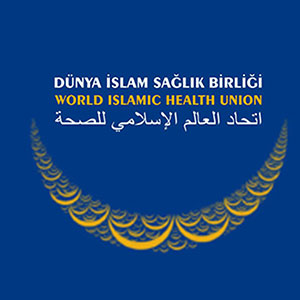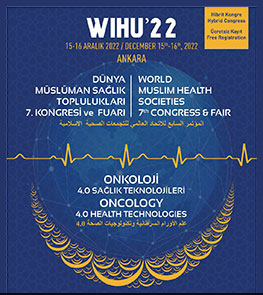WIHU'22 FINAL DECLARATION
FINAL DECLARATION
Honorable participants,
The 7th Congress and Fair of the World Muslim Health Societies, with the themes "Oncology and 4.0 Health Technologies," is successfully over. We would like to thank everyone who contributed to the preparation, coordination, and execution of the event on behalf of WIHU, with special thanks going out to our distinguished audience for actively participating in our congress as well as our panelists who generously shared their experience.
We discussed the diagnostic, preventive, and therapeutic elements of oncology and concept of Health 4.0 with an emphasis on current problems and future prospects for these topics.
Approximately 8.2 million people die from cancer each year, making it the second most common cause of death in the world. Most of these fatalities take place in low- and middle-income nations. Globally, it contributes to morbidity and is a major public health concern; by 2030, it is predicted that there will be 21.6 million new cases of cancer annually. The outcomes for cancer are worse for some demographic groups due to disparities in risk factor exposure, availability to screening, early diagnosis, and timely and effective treatment.
We observe that lowering the risk may be possible for about half of all malignancies. Cancer patients' prognosis and quality of life can be enhanced by early diagnosis, fast and effective therapy, pain management, and palliative care. We appreciate the development of new pharmaceuticals as a result of recent investments in cancer treatment innovation, but we are deeply concerned about the rising cost to patients and health systems. By enhancing national health systems and international cooperation, access to safe, high-quality, cost-effective, and timely medications, medical products, and appropriate technology must be addressed.
It is essential to create and put into practice evidence-based cancer management regimens, including palliative care. To establish centers of excellence for the treatment of certain cancers, we must put a strong emphasis on collaboration. It is crucial to promote guidelines that support clinical decision-making and referral based on the efficient, safe, and economical use of cancer diagnostic and therapeutic services, such as cancer surgery, radiation, and chemotherapy; to enable cross-sectoral collaboration between health professionals; and to facilitate training of staff at all levels of health systems. In order to assist cancer control, sustainable domestic human and financial resources must be recruited, and novel financing ways must be provided on a voluntary basis. The evidence for cancer prevention and control must be strengthened through the promotion of cancer research, including studies on health outcomes, quality of life, and cost-effectiveness. Pain management and palliative care are important elements of cancer care. With the active participation of cancer survivors and their families, follow-up, late effect management, and tertiary prevention must be foreseen and supported.
The idea behind health 4.0 is to use cutting-edge new technology to enhance health. With the help of a secure, moral, and sustainable technology, it contributes to the development of public health policies at the local, state, and federal levels. This idea has the potential to dramatically enhance patient follow-up, provide several positive effects, and have a significant impact on how services are delivered. Making better decisions is now possible by the help of modern technologies, which raises the level of corporate intelligence. Health 4.0 also emphasizes avoiding the potential need for health insurance, which significantly lowers running costs. Utilizing technology in the healthcare industry provides for a wide range of needs and has various advantages for both patients and clinics and hospitals.
We need to continuously monitor contemporary changes and recent advances to incorporate cutting-edge technical facilities in their practice because many Muslim countries suffer from the burden of oncologic diseases, which are linked to increasing risks of hunger, poverty, and injustice. In addition to a structural economic transformation and sufficient financial resources, this necessitates a sustainable national and international effort. We want to collaborate on other initiatives started by WIHU, and we respectfully appreciate your efforts and wish you success in your endeavors.
Thank you very much.
Jazakumullahu khayran.








